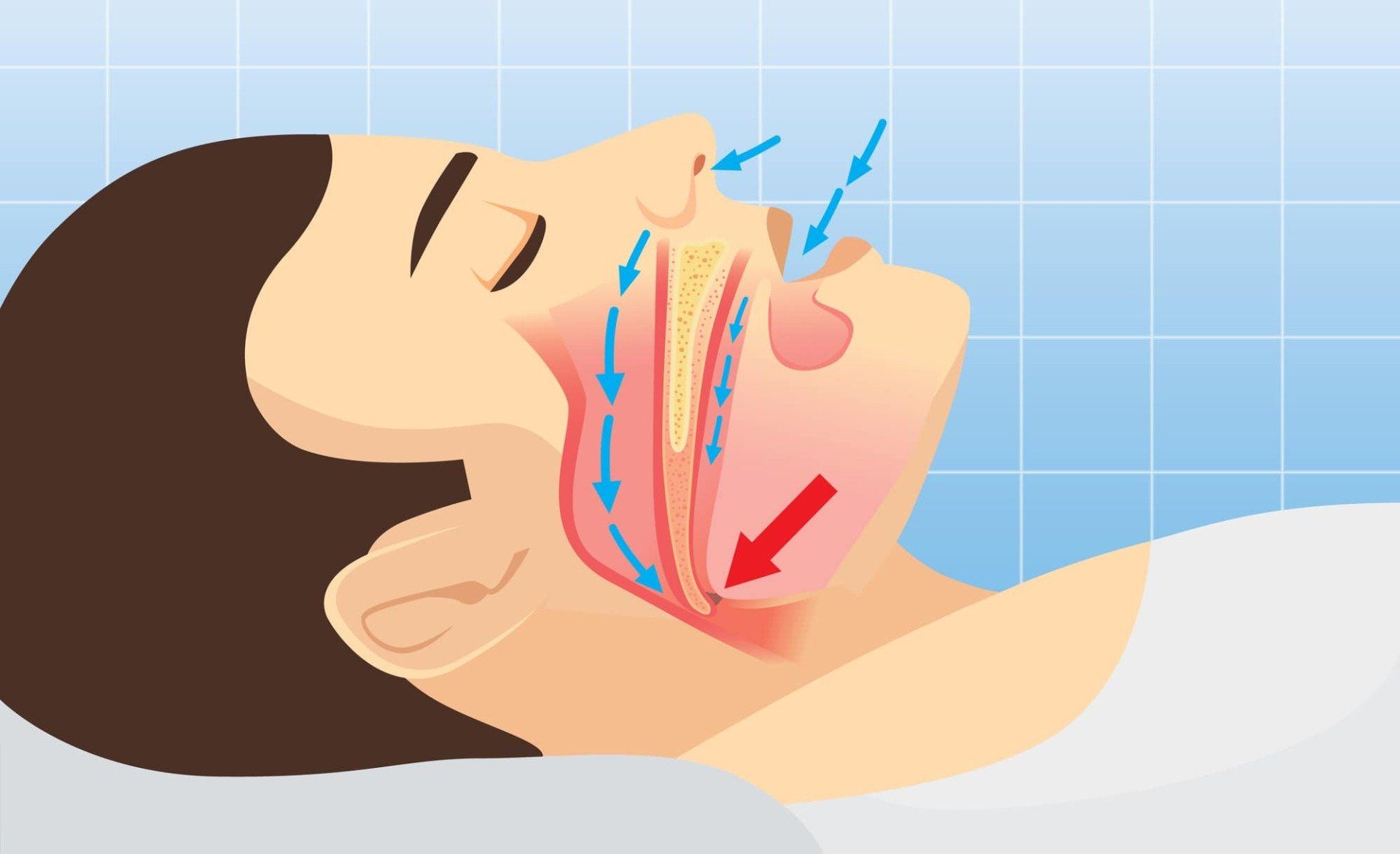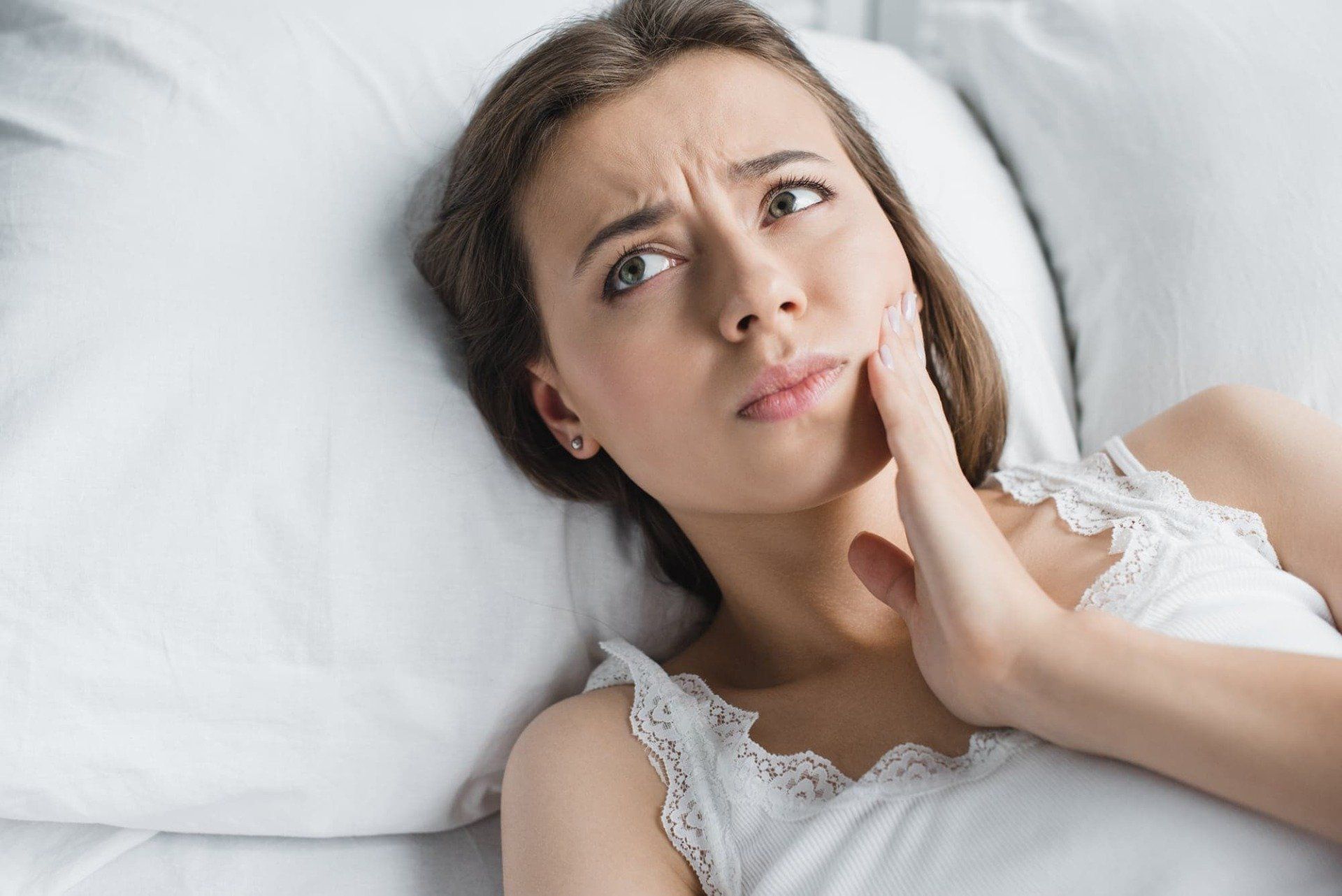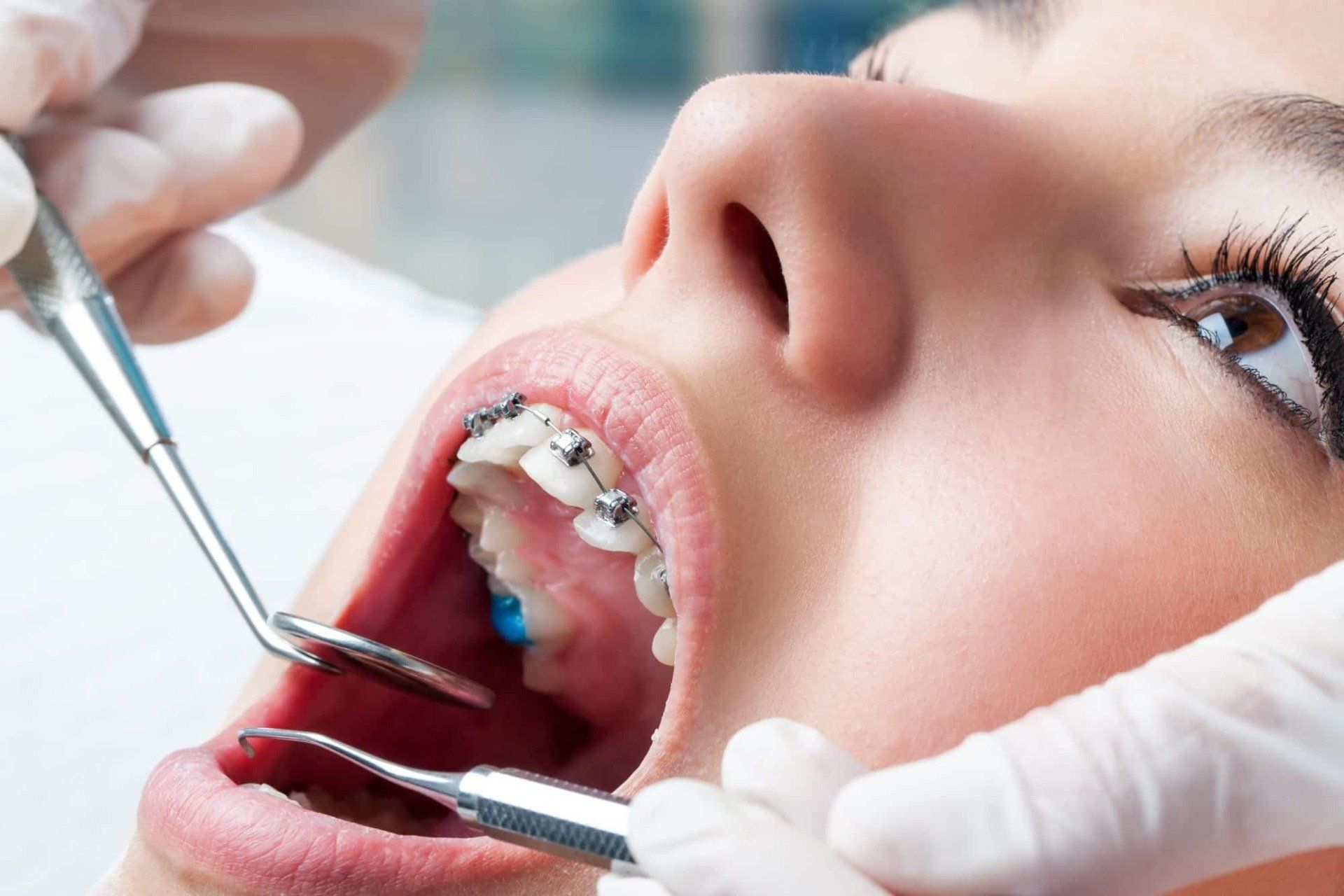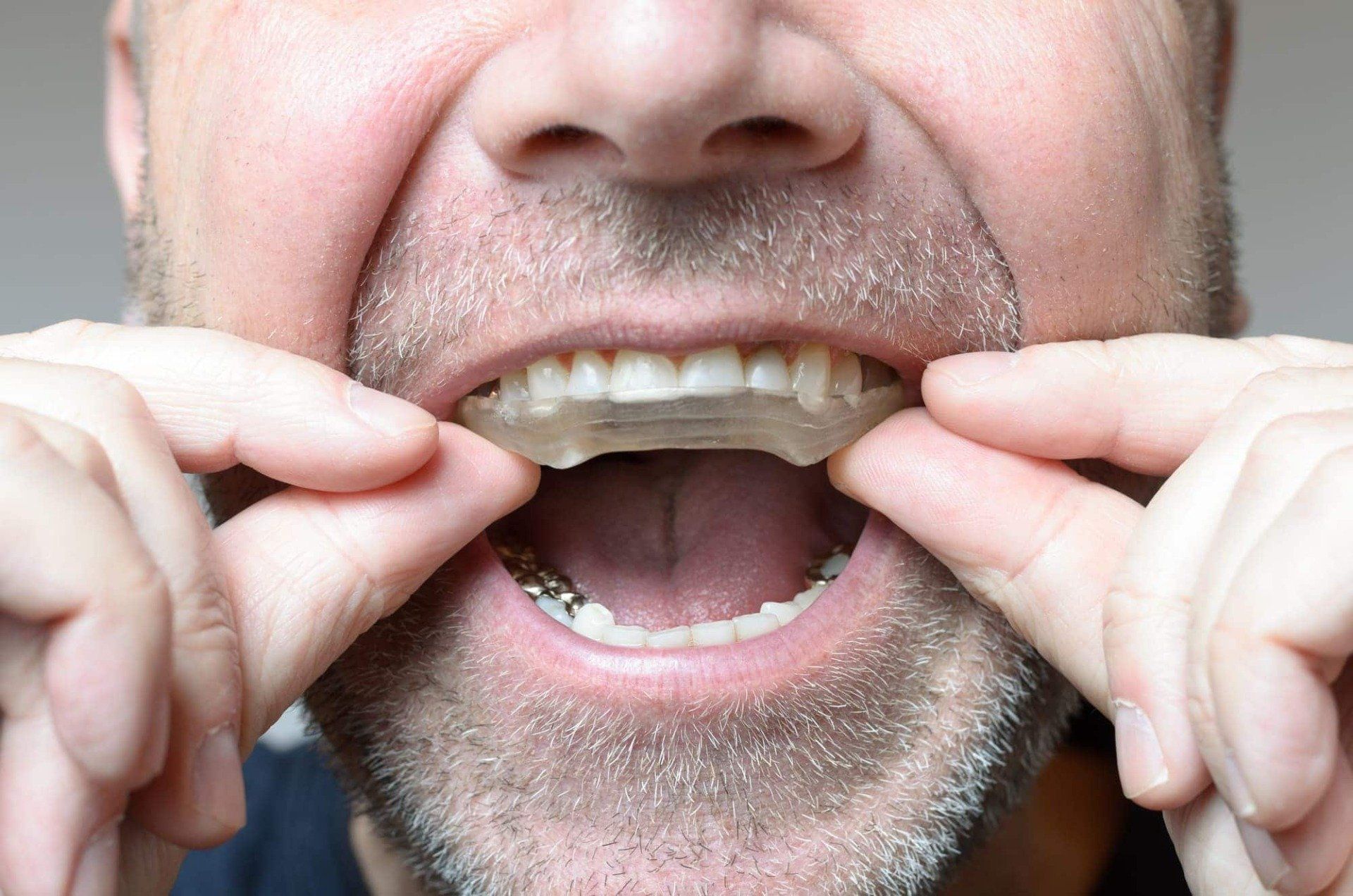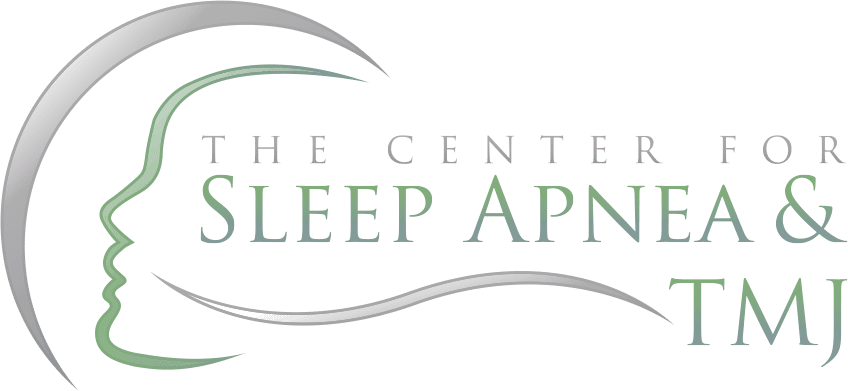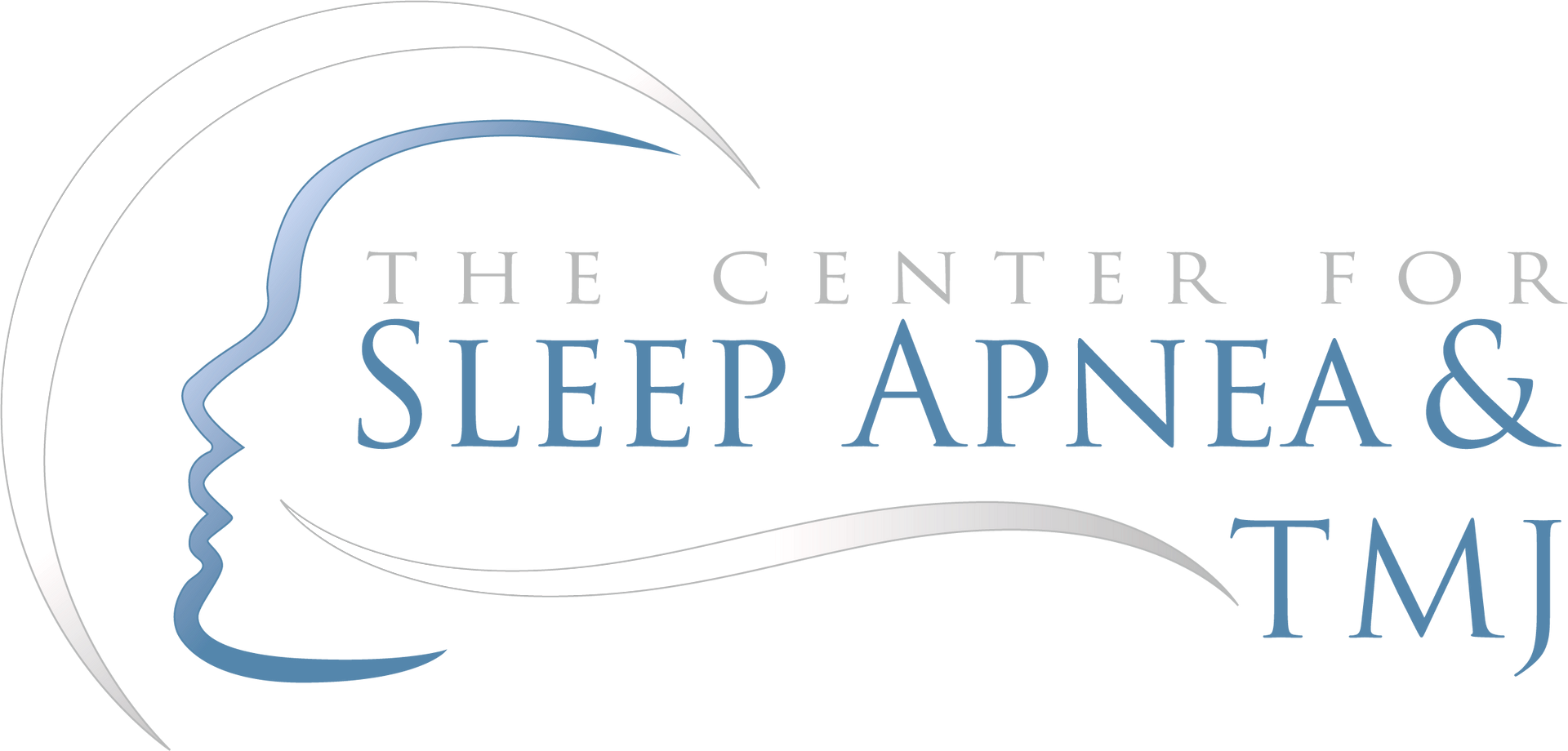6287 S. Redwood Rd #101 Taylorsville, UT
Call Us Today!
TMJ DISORDER TREATMENT IN UTAH
TMD can severally impact your quality of life through pain and discomfort. Let our TMJ experts help alleviate your symptoms.
What are TMD and TMJ?
Obstructive sleep apnea (OSA) is the term for when the airway collapses, either partially or fully, while someone is asleep. This limits or blocks the ability for air to flow into the lungs. As the person continues to try and breathe, the airway constricts, no matter how hard they try to keep breathing. Once this happens, the person will change the position of their tongue and jaw so that the airway is now open. This usually is followed by the person gasping or snorting. Finally, the person affected will begin this process again.
The effects of this are harmful. It not only makes it harder to breathe, which can be dangerous, but it also leads to less restful sleep. When the airways constrict, the brain “awakens” the person so that they are sleeping more lightly. Spurts of gasping and snorting can repeat hundreds of times throughout the night, disrupting sleep all around.
If you are suffering from sleep apnea in Utah, please come see us.
TMJ is short for the temporomandibular joint. When issues occur with this joint, it can cause a range of disorders known as Temporomandibular Joint Disorder, or TMD for short.
Temporomandibular Joint Disorder is a disorder that leads to intense facial pains. Women who are of childbearing age are most commonly affected, but TMD can affect men and children as well.
The exact causes of this disorder are unknown. However, it can manifest in painful and uncomfortable symptoms. Here at the Center for Sleep Apnea & TMJ, our TMJ experts treat a range of patients who suffer from TMD.
DID YOU KNOW?
15% of untreated TMJ sufferers will develop a chronic TMJ Disorder
AND
An estimated 17.8 million work days are lost annually due to TMJ disorder related issues.
Symptoms of TMD and Craniofacial Pain

The symptoms of TMD are categorized as types of craniofacial pain. Craniofacial pain is a broad term used for encompassing all pain in the face and head, including those caused by temporomandibular disorders. Craniofacial pain can include the following symptoms:
- Muscular/facial pain
- Locking of the jaw
- Clicking or popping of the jaw
- Nerve disorders
- Referred ear pain, fullness or ringing
- Headaches
- Neck pain
If you are experiencing one or more of the symptoms mentioned above, consult our TMJ expert for TMJ therapy in Utah to avoid further health issues.
TMJ Treatment Options in Utah

TMJ pain alleviation without surgery is a solution in some minor situations, at our sleep apnea and TMJ center we provide TMJ therapy in Utah according to the severity of the symptoms. The following TMJ treatments that can help you manage symptoms and reduce TMJ pain without surgery:
Keep Your Jaw in Its Resting Posture
Reduce wide jaw motions like chewing, yawning, singing, and yelling to aid with TMJ pain. Try your best to maintain the most relaxed state of your muscles. Visit our TMJ clinic for more details.
Adjust Your Posture
You may experience more jaw pain if you sit in an uncomfortable position for an extended period of time.
Take frequent pauses while working and select a chair with back support to enhance your posture. Set your seat as upright as you can while driving, and if engaging in leisure activities like watching TV or reading, select a location that enables you to sit upright and arrange a pillow behind your back for support.
Apply a Compress—Hot or Cold
Heat and ice both help to relieve discomfort and swelling, while heat also helps to relax your jaw muscles. Apply for 15-20 minutes.
Lessen Stress
To assist with relaxing and loosening up your jaw, try meditation practices. For example, yoga exercises can assist in reducing the strain on your muscles. Gardening is also a terrific pastime to try to calm your thoughts.
Try Jaw Exercises
Your joints' mobility may improve with jaw stretching exercises.
Habits To Avoid
TMD pain may be brought on by a few inclinations:
• Biting of nails
• Lip and cheek chewing
• Propping of your jaw on your hand
• Teeth clenching
TMJ Surgery Types
If non-invasive treatment options prove ineffective, temporomandibular joint disease (TMD) can be treated surgically in one of three ways:
arthroplasty, arthroscopy, or full joint replacement. The first two therapy options include same-day, minimally, or moderately invasive surgeries done while the patient is under general anesthesia. These are severe TMJ treatment options. As such we recommend you consult with us about TMJ therapy options before pursuing surgical options.
What to Avoid When Suffering Jaw Pain
If you are unsure about your diagnosis or treatment, you should avoid having any type of “irreversible” therapy including:
- Orthodontics or braces*
- Equilibration – grinding the teeth down to improve your bite*
- Crowning the teeth*
- Tooth extraction
- Root canals
- ANY type of surgery for TMJ or the jaw
*The American Dental Association refers to these procedures as “phase two therapy” and recommends that they only be performed AFTER successfully having “phase one therapy.”
Jaw Pain Treatments in Utah
TMJ treatment in Utah usually involves a conservative therapy plan combined with the use of oral orthotics or “splints.”
In our office, splints for daytime use are usually made to be worn on the bottom teeth, making it less noticeable, more comfortable, and easier to speak while it is in. Generally, we prescribe a different splint for night usage, worn on the upper teeth.
In addition to using splints, other therapies for jaw pain treatment may include:
- Prolotherapy
- Therapeutic injections to help “unlock” your jaw
- Botox
- Trigger point injections
- Medical acupuncture
- Moist heat application
- Massage therapy
- TENS therapy
- Iontophoresis
- Ultrasound
- Medications


